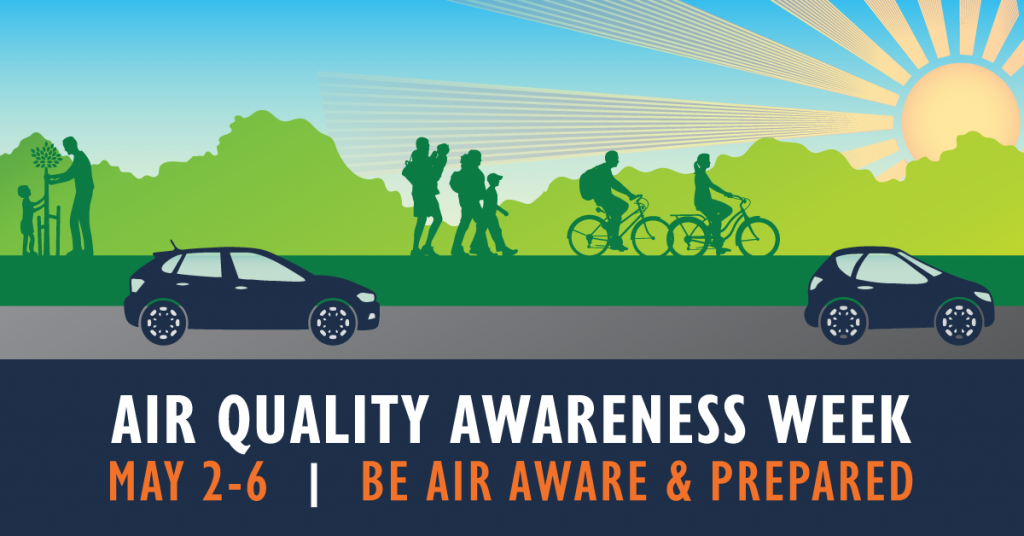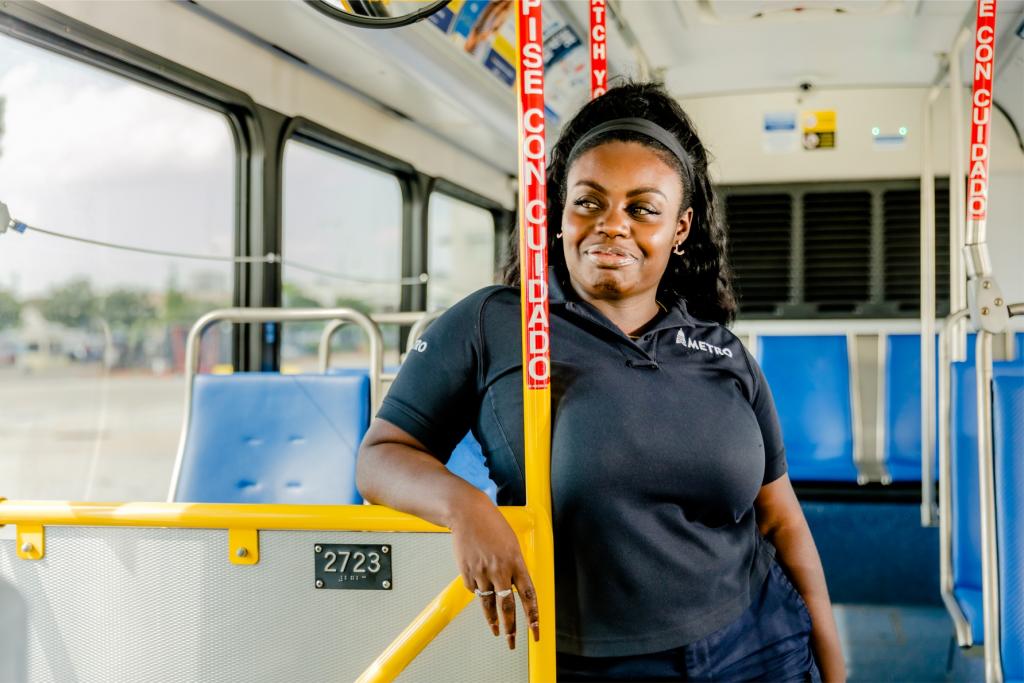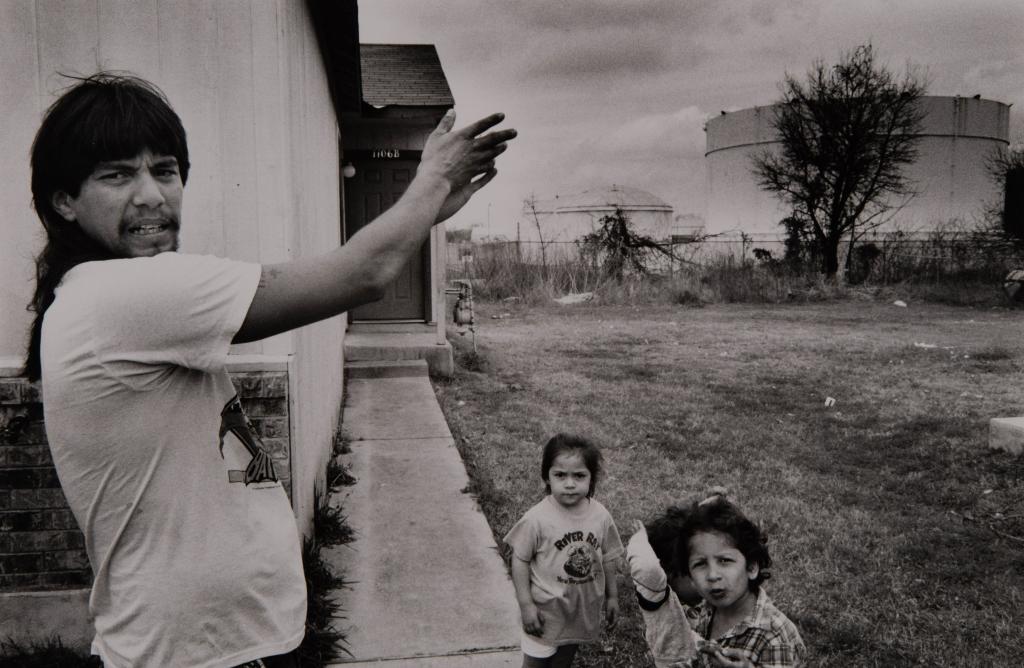Be Air Aware & Prepared

Breathe in. Feel your lungs expand with air. Breathe out.
Every second, we breathe in about a cup of air, or nearly a gallon every minute. For many of us, breathing is so automatic that we may have taken it for granted at one point or another. But, breathing clean, fresh air is necessary for people to survive and thrive.
In Austin, air quality is in danger of becoming worse because of human-induced climate change. Below are just some of the ways our warming climate impacts local air quality.
- How many of us have complained about oaks and Ashe juniper trees during allergy season? Our warming climate may be making allergy season longer and more severe. A study released in 2021 found that, since 1990, pollen season had increased by 20 days and that the concentration of pollen in the air had risen by 21%.
- Have you followed the news of devastating wildfires across our planet, from California to Australia? Our changing climate means that wildfires, one of the worst causes of air pollution, are happening more frequently. In fact, according to recent rankings, Austin is the U.S. city with the highest risk of wildfire outside of California.
- Warming temperatures can lead to increased “ground-level ozone,” which can trigger health problems, including asthma.
Since it’s not always easy to “see” when the air quality is unhealthy, it’s helpful to know what causes poor air quality and what we can all do to keep our air clean.
What causes poor air quality?
During spring and summer in Central Texas, there are times when levels of “bad” ozone — called “ground-level ozone” — reach amounts that can cause negative impacts on public health. This type of ozone is created when sunlight triggers a chemical reaction between oxygen-containing molecules and pollution from cars, power plants, factories, and other sources. When ground-level ozone levels become high, Austin declares an “Ozone Action Day.” In Central Texas, we typically have between 5-10 Ozone Action Days per year, but, in March 2022 alone, we’ve already had six.
For sensitive populations, such as the very young or elderly, people with respiratory issues like asthma, and those who work outside, avoiding outdoor activity is recommended on Ozone Action Days. This is because breathing in ozone can irritate and damage airways and make it harder to breathe.
On Ozone Action Days, you can help make a difference and support sensitive populations by:
- Opting for sustainable forms of transportation
- Avoiding traveling alone in a car
- Working from home, if you’re able
- Conserving energy in your home

Above: Choosing sustainable transportation can support positive air quality. Photo courtesy of Capital Metro.
Another big contributor to air pollution is particulates. Particulates are the small fragments released from construction sites and things that burn fuel, like cars, power plants, and wildfires. Particulates, unlike ozone, can cause health problems year-round. Like ozone, particulates have been linked to a worsening of lung problems, especially asthma. Both particulates and ozone also are associated with increased cardiovascular events, such as stroke and heart attack.
Understanding Austin’s history
In Austin, the City’s 1928 master plan segregated the city along racial lines and forcibly relocated Black and Hispanic/Latinx communities East of what is now IH-35. East Austin was then designated for industrial development. This meant that communities of color forced to live in this area were now more likely to live near sources of ground or air pollution. These health inequities persist to this day – low-income communities and communities of color are statistically more likely to suffer from asthma and other breathing disorders in our community.

Above: An East Austin resident shows the proximity of a tank behind their house. Photograph by Joe Vitone. AR-2012-015-015, Austin History Center, Austin Public Library, PODER Records.
Additionally, people who live near major roadways with higher concentrations of particulate matter, such as IH-35, are more likely to develop lung issues. Particulate pollution is also linked to cognitive decline in the elderly. This can have a big impact on people experiencing homelessness, for example.
Take action for a healthier Austin
The ability to breathe clean air is a human right, and we must continue to work together to advocate for clean air in our community. We hope you’ll join us during Air Quality Awareness Week, May 2-6, to help spread the message about why air quality is so important for our health. Some ways you can support:
- Follow us on Facebook, where we’ll be sharing daily info on air quality throughout Air Quality Awareness Week
- Check current air quality conditions and share the information with neighbors and loved ones
- Opt for sustainable transportation and do your part to conserve energy year-round
- Visit our website for more information
With your help, everyone in Austin can breathe a little bit easier.
